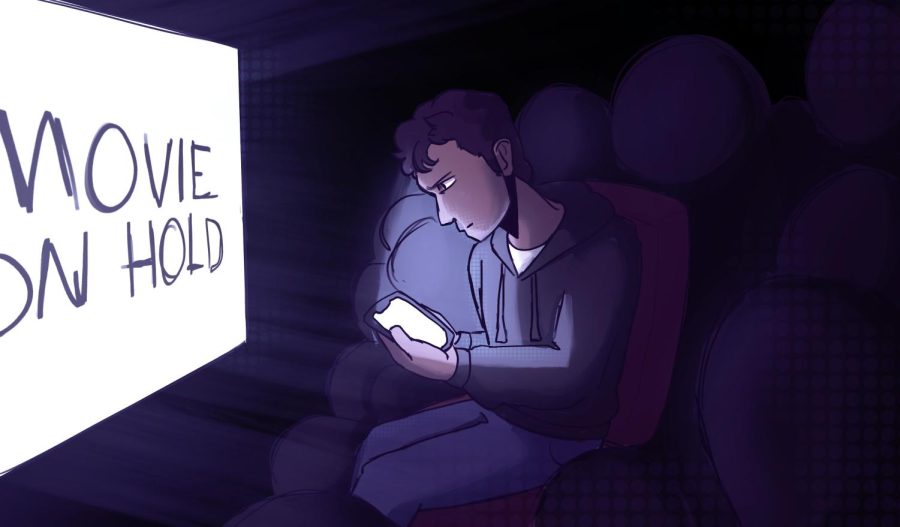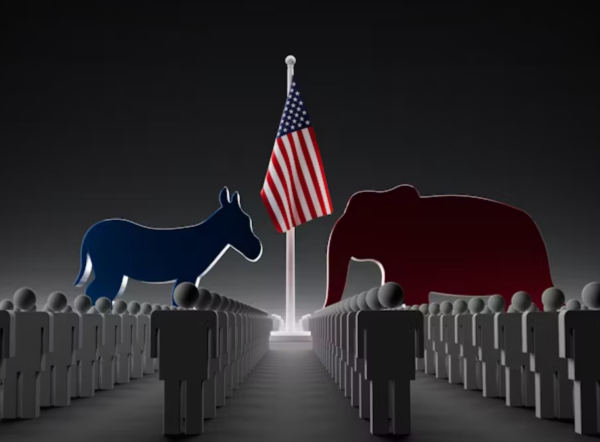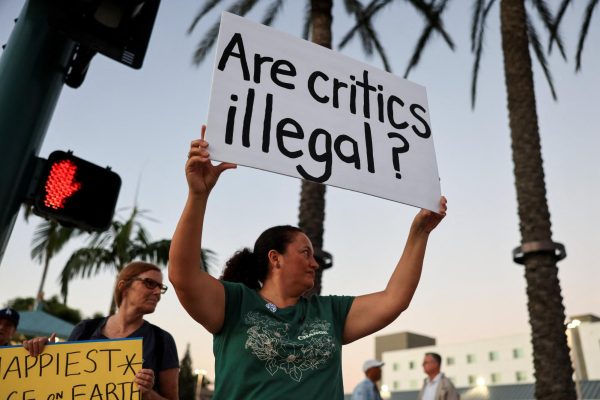OPINION: Hollywood writers’ strike risks making long-form media extinct
Often, fans become invested in their favorite movies and TV shows after watching for months. This long-form media takes audiences through emotional roller coasters as they become attached to aspects of the show. Unfortunately, these types of long-form productions are at risk because of the recent Writers Guild of America (WGA) strike.
On May 2, the screenwriters that are part of the WGA began protesting in Hollywood for better pay, protection from AI and changes to the structure of production. The L.A. Times reports the economic fallout of the strike will be over $2.1 billion because the writers are willing to strike for as long as it takes to get their demands met. Big studios like Netflix are unwilling to compromise, and it seems that the strike isn’t going to end anytime soon. Without screenwriters, franchise media will not be produced, and short-form media, such as TikToks and YouTube videos, will take over the entertainment industry. This will be detrimental to the nostalgia and entertainment that traditional film has created over the years.
Though having a “For You” page tailored specifically to you can be entertaining, it fails to create a bonding experience. Movies and shows have the power to be impactful, whether they make social commentaries or connect individuals through comfort characters. Many people that come from various backgrounds are able to relate to the media that is made for all audiences. In contrast, social media platforms use algorithms to push specific content out to certain viewers. This fails to bring audiences together in a shared experience.
Last summer, the release of Season 4 of “Stranger Things” led to the forming of numerous watch-parties and new friendships. Talks of plot twists and predictions filled conversations. Many have anxiously anticipated Season 5, but the writers’ strike has put this on hold. Audiences will find themselves missing out on the unifying experience of a new release.
In order to prevent this catastrophic loss, an agreement must be reached. Negotiations have reached a stalemate, and neither side wants to compromise. To preserve this cherished industry, both parties must cooperate. If this fails to happen, audiences, screenwriters and studios will all face extreme implications. Audiences will lose the ability to bond over films that have been part of their lives for years and instead will become invested in short-form media. Screenwriters will then face unemployment, creating worse economic conditions than those they are already protesting to rectify. Further, studios will lose money that comes from their billion-dollar film franchises. Preventing this from occurring is essential to keeping the beloved film industry alive.







